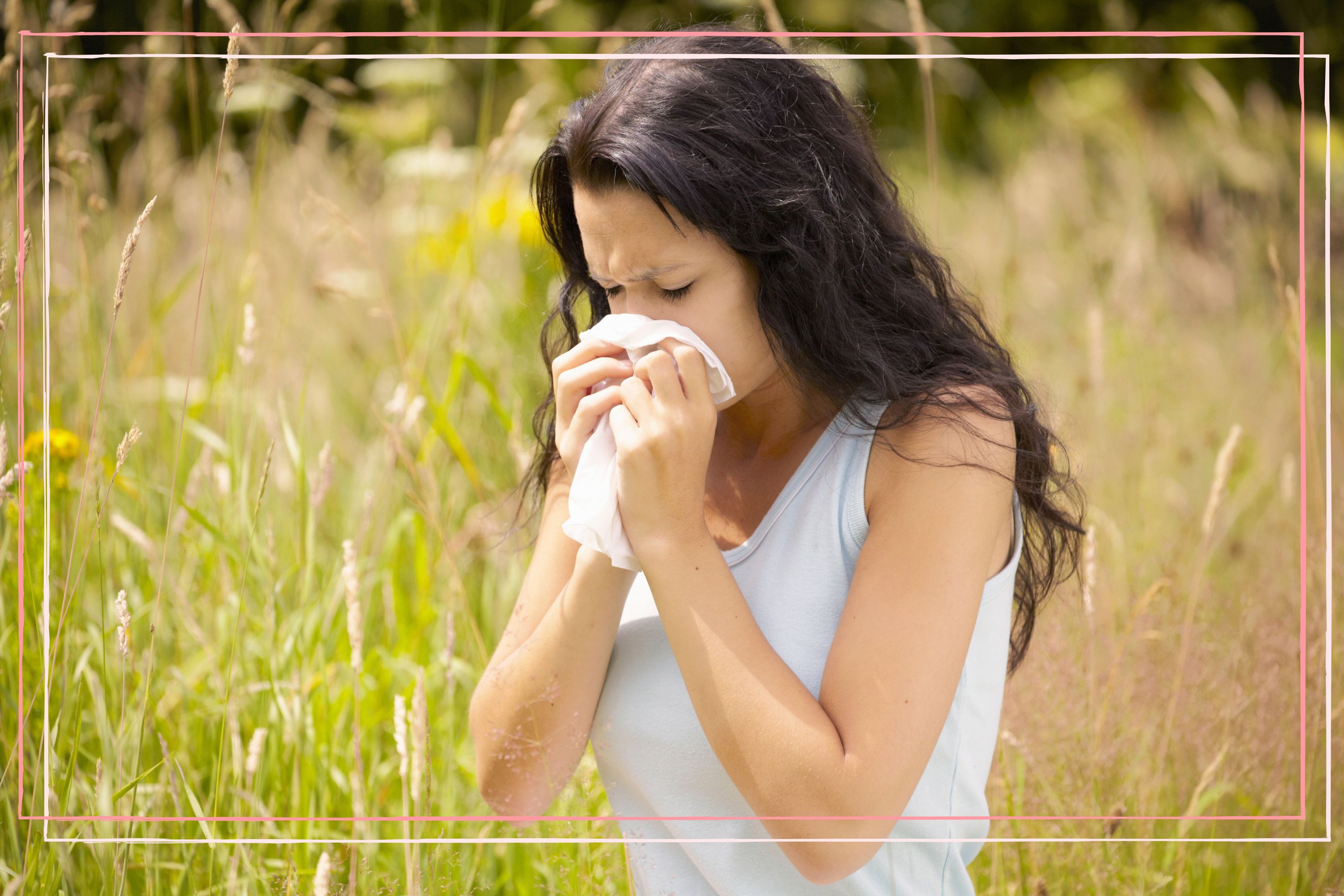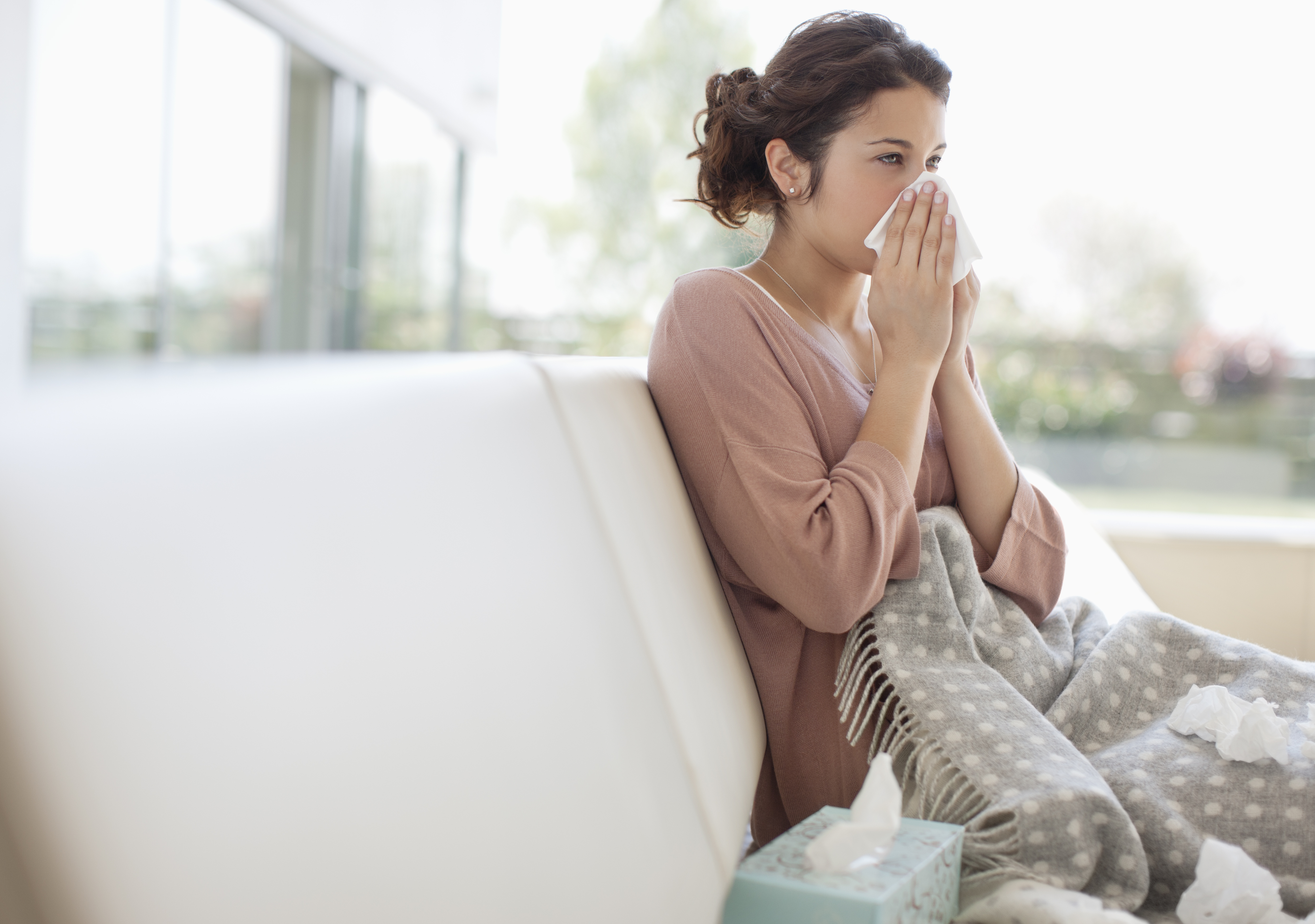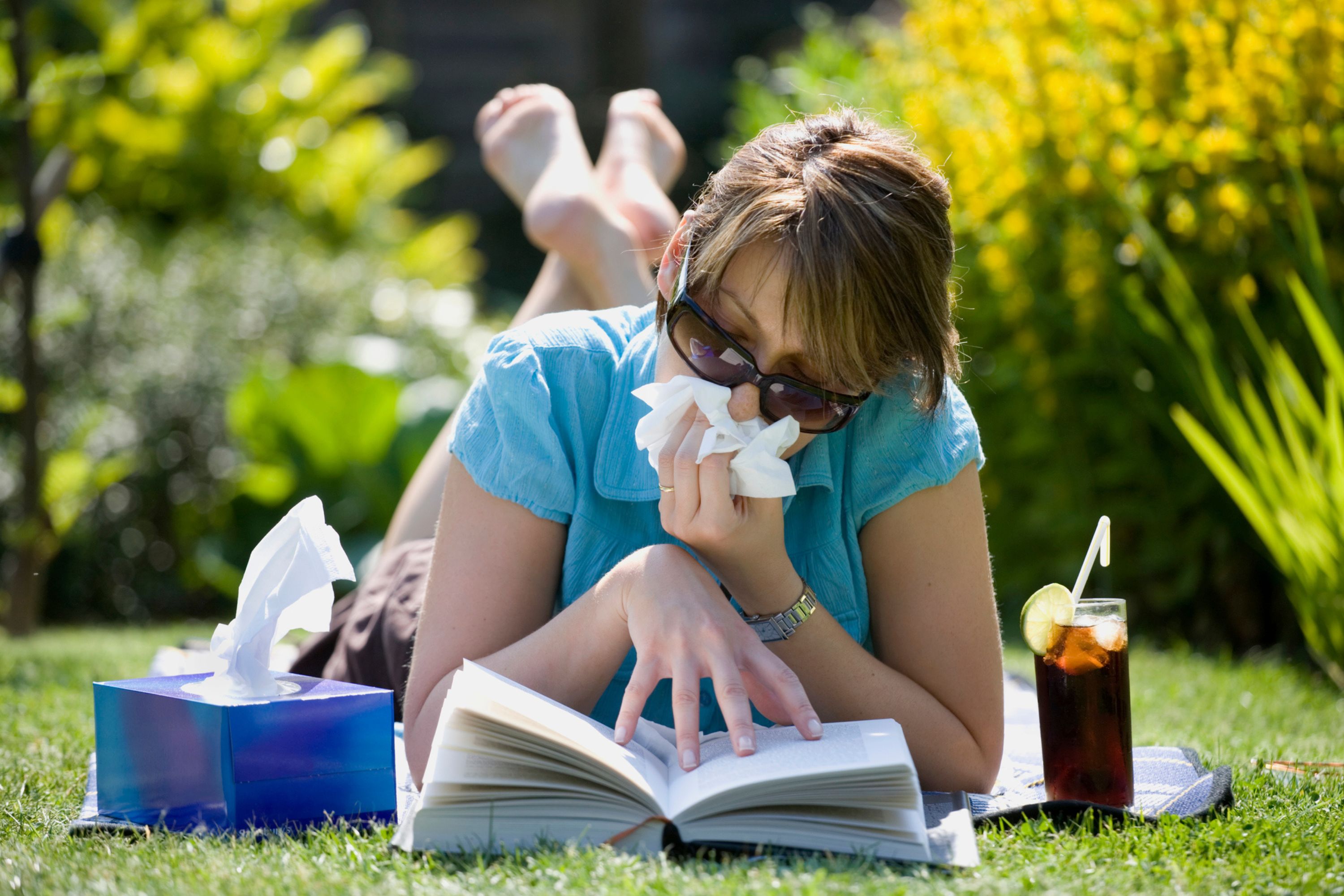Why is hay fever so bad this year?
If your sneezing and itchy eyes are worse this year, you're not alone


Parenting advice, hot topics, best buys and family finance tips delivered straight to your inbox.
You are now subscribed
Your newsletter sign-up was successful
If you're wondering why hay fever is so bad this year, you aren't alone. We take a look at some of the causes for the increase in those annoying symptoms that can blight the warmer months.
For some people, the summer months can be characterised by hay fever symptoms that can put a dampener on their enjoyment of the nicer weather. There are natural hay fever remedies available to treat those itchy eyes and throat, sneezes and coughs, and the multitude of other traits that rear their heads when the pollen count rises. Even babies get hay fever, meaning the smallest members of your household can start displaying signs of the allergy. Hay fever appears particularly bad this year, and you might be wondering why.
GP Dr. Roger Henderson says "Hay fever and the common cold can share many symptoms, such as a runny nose and sneezing, but there are ways of telling them apart. Hay fever usually involves itchy or watery eyes and any runny nose is usually clear in colour. In addition, a cold usually lasts one to two weeks, while hay fever can last for months, depending on the pollen count – the higher the pollen count, the worse hay fever symptoms can be."
With the feeling that hay fever is worse this year, we've spoken to the experts about why this could be, and when the hay fever season peaks in the UK.
Why is hay fever so bad this year?
It is believed that hay fever is so bad this year due to unseasonal weather, climate change, and poor air quality. The plentiful rain the UK had for much of the early part of 2023, combined with the sudden increase in temperatures, has seen rapid growth in plants and an increase in hay fever.
There are also claims made by scientists that climate change is causing the hay fever season to begin earlier, and continue for longer. Dr Nasir Hannan, GP at The London General Practice tells us "There has been worsening length and severity of hay-fever over the last few years. This has in part been due to climate change in the UK."

He continued "We are seeing episodes of severe heat along with marked thunderstorms. This is leading to increased hay-fever symptoms and in extreme cases we are seeing the phenomenon of thunderstorm asthma. This is where pollen is swept up into clouds. The pollen is then broken up by wind humidity and lightening in the clouds causing microparticles that then come back down causing severe symptoms".
Parenting advice, hot topics, best buys and family finance tips delivered straight to your inbox.
Air pollution levels have also increased across much of the country, also exacerbated by the higher temperatures. In a similar way that unusual weather has been affecting hay fever sufferers, pollution acts on a similar principle - pollution mixes with pollen and becomes airborne, allowing easier contact with eyes, noses and throats of those with the condition.
Is hay fever getting worse in the UK?
Yes, it appears that hay fever is getting worse in the UK, with the number of people diagnosed with the condition trebling over the last 30 years.
A study published in Science of The Total Environment offers evidence of rising pollen counts in certain areas in the UK. The research found important changes are occurring in the UK pollen seasons, that have the potential to negatively impact the health of hay fever sufferers. Pollen production is being aided by warmer summers with certain pollens being found earlier. The researchers concluded that climate drivers and land-use change - such as grassland replacement by urban areas, were the predominant reasons for the change.
Physician and healthcare educator Dr Kelvin Fernandez tells us, "Climate change is our uninvited guest, wreaking havoc in many aspects, including our health. As the world keeps getting warmer, pollen production is soaring. In the UK, it's the early birds - the oak, grass, and birch pollen - that are setting off the hay fever season sooner and making it more potent."
He added "Odd weather patterns, another gift from climate change, are making things even more complicated. We're accustomed to a certain order - tree pollen in spring, grass pollen in late spring and early summer, and weed pollen in late summer. But, as I've noticed, this predictable sequence has been thrown into chaos due to unseasonal weather events, making the pollen season unpredictable."

Dr. Kelvin Fernandez is a physician and healthcare educator at Ace Med Boards. As a UNIBE School of Medicine graduate, he has sought to improve medical education for future physicians. As a tutor, he helps students succeed in their medical board licensing exams. His advice has been previously quoted in MSN, Yahoo, and Men's Health.

Why is the pollen count so high this year?
- Lengthy cold temperatures - Do you remember how January appeared to go on for ever, then the rain and cold temperatures just didn't stop? This contributed to the high pollen count this year. This cold spell resulted in pollen being released later too, meaning a "pollen bomb" arrived when the temperatures eventually increased.
- More rain than usual - When the sun did come out, combined with the previous rainfall meant perfect growing conditions for plants and flowers. More plants and flowers means more pollen.
- Humidity - We had the wet spell, followed by the late sunshine, and now we have the humidity. We had more pollen in the first place, and humid weather causes individual pollen grains to gain water and burst. This process means the already high pollen count is even more easily distributed, and hay fever sufferers experience a worsening of symptoms.
- Pollution - Worse in urban areas, pollution has made the pollen count worse this year. Smog prevents pollen rising, allowing it to collect in large quantities and usually make its way back down into mouths and noses. Mixing with pollution can also make pollen sticky, increasing the risk of it clinging to the mouth and nose.
When is hay fever season in the UK?
Hay fever season begins at different time, depending on where you live in the UK. According to the Met Office, tree pollen is the first to arrive, typically lasting from late March until the middle of May.
Grass pollen experiences two peaks between the middle of May until July, with weed pollen taking over and covering the period from the end of June until September.
However, the hay fever season starts at different times depending on where you live in the country. In the North of the country, it generally starts later, finishes earlier, and the area has fewer amounts of pollen. Urban areas generally see a lower pollen count than their countryside counterparts, also causing their hay fever seasons to be variable.
The season is also affected not just by geography, but by other factors including how wet, dry, hot or cold it is, and how the spring and early summer weather behave. Chris Newbury, a pharmacist from the online pharmacy The Independent Pharmacy, spoke to us about the variable pollen season start times.
He said "While many hay fever sufferers are allergic to a single type of pollen, some are affected by more than one. If the tree, grass, and weed pollen seasons begin to overlap, some sufferers will have little break from their symptoms and could be impacted from February through to October."

Chris Newbury qualified as a pharmacist in 1996. After graduating from the University of Bath he has practiced pharmacy in hospitals in Middlesbrough and Bristol as well as in a variety of community pharmacies. He has experience in auditing and advising doctors on their prescribing, running teaching sessions for doctors and other healthcare professionals and running successful pharmacy stores.
If your little one is suffering, we have some cleaning hacks to improve their sleep during hay fever season. If the whole family are feeling to hot in the rising temperatures, we've got practical advice on how to keep your house cool in summer. We even have 8 more ingenious hacks to cool down fast, if you need even more ideas.

Lucy is a mum-of-two, multi-award nominated writer and blogger with six years’ of experience writing about parenting, family life, and TV. Lucy has contributed content to PopSugar and moms.com. In the last three years, she has transformed her passion for streaming countless hours of television into specialising in entertainment writing. There is now nothing she loves more than watching the best shows on television and sharing why you - and your kids - should watch them.